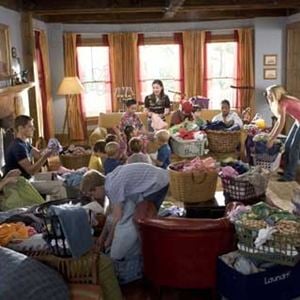

Here’s my question for those that subscribe to the direct impingement fouling concept: Mike Pannone and own the copyright on these photos. I ain't been in a gunfight yet.All photos contained in this article were taken by Mike Pannone for, and are copyrighted. Muscle memory kicks in and you do it without thinking.īut when you are at the range, and your gun does not work correctly, and muscle memory kicks in and you tap-rack-bang without thinking, bad things can happen.Īnd truthfully - which is more likely? That you will have a defective cartridge at the range, or that you will have one in a gunfight? Me, personally, I been going to the range for forty years.

So you practice tap-rack-bang, tap-rack-bang, tap-rack-bang, until it is second nature, and if you are ever in a gunfight, and your gun does not fire when it should, then tap-rack-bang is great.

And they work exactly backwards from each other. See, I had been shooting my Python quite a lot, at that time, and with MY adrenaline high, and my eyes and brain looking at where the deer went, my hands, running solely on muscle memory, were trying to open that Colt I had been shooting every day for the past week.īut I did not have a Colt that day. I finally look down to see what the problem was, and I was attempting to pull the thumblatch backwards. So I'm sitting there, watching where he went in, and attempting to reload the empty in my gun. Immediately starting to track him would cause his adrenaline to rush, and he would run for miles. This would give a wounded animal time to lie down and either stiffen-up so he could not get up and run again, or bleed out and die.

Deer ran back in the bushes.Ĭonventional wisdom (as told by many outdoor magazines) said that you should wait, after shooting a deer, for 30 minutes or so, before going to look for it. I dropped the lighter (this is why you need a Bic - that Zippo kept burning as it lay between my legs), raised the N-frame Smith, and fired. Sitting across a dry pond, with my pistol in my lap, lighting a cigarette, when a buck came out of the woods on the other side. Caught the rear sight of my 94 on a branch, and raised it enough for the elevator to fall out and get lost. You don't think about what you are doing, you just do it. I learned, back in high school band, that you will PERFORM the way you REHEARSE. But boy-howdy, we got that second shot off quick. Something that made it fire, but not enough to get the bullet out of the barrel. If the first one was a hang-fire, or a miss-fire, then no BIG problem. In the case of a hang-fire, however, now when it BANGS, it does not go down the barrel, but instead shoots out the front of the cylinder, hiting the edge of the forcing cone and going - somewhere?Īnd we are in such a blazing damn hurry to get that second shot off, that we don't stop to analyze just WHAT it was about that first shot that was wrong. This moves the offending cartridge out of the way, bringing up a new one, "BANG, yaaaaaayyyyy". I've read where revolvers are better that autos, in that in the case of a KLICK, you don't even have to tap-rack-bang. If that was a hang-fire, it might go off just after you unlocked the bolt, and will slam the bolt back (damaging you and/or the gun) or decide to go off while it is in the air, scattering brass shrapnel around. If it goes KLICK, you immediately slap the bottom of the magazine to make sure it is seated (tap), jerk the bolt back to eject the bad round and load another (rack) and fire the new, "good" round (bang). Unload the gun, then look down the barrel to see if there may be a bullet blocking it.īut now? Tap, rack and bang. I was also taught that if, when you fired, it sounded or felt, in any way, different or "wrong", to STOP. If it did not go off, chances are it would not, so you could then remove it from the gun and either reload it and hit it again, or throw it away, whichever you preferred. When I was a wee little lad, if you pulled the trigger and it went KLICK, you were taught to wait, with the muzzle pointed downrange, for ten seconds or so, in case it was a hang-fire.


 0 kommentar(er)
0 kommentar(er)
